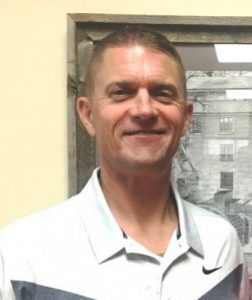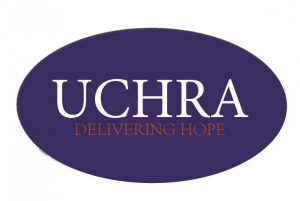News
How Will Rising COVID-19 Numbers Affect Reopening Plans for DeKalb Schools? (Listen Here)
July 16, 2020
By: Dwayne Page
What impact will the rising numbers of COVID-19 cases have on the scheduled start of school in DeKalb County on August 3?
Director of Schools Patrick Cripps and Attendance Supervisor Joey Reeder appeared on WJLE Thursday morning to address this question and many others.
If you missed the program or would like to hear it again click the link below
https://www.wjle.com/reopening-dekalb-county-schools
Although plans are for a traditional reopening of DeKalb County schools with students attending on campus August 3 parents may opt for remote learning from home for their children. Parents are asked to contact their child’s school weekdays from 9 a.m. until 2 p.m. prior to July 22 if they want their child to participate in remote learning.
Cripps and Reeder took many call-in questions from listeners for almost 90 minutes during the LIVE radio program as they discussed the frameworks and protocols for the planned reopening.
Currently the number of COVID-19 cases in DeKalb County total 128 with 67 active as of Thursday, July 16. That is more cases than when schools were closed due to COVID in March.
Cripps and Reeder were asked what would be the COVID number to keep schools from reopening or having to close again
“We are not getting any guidance as far as when we need to shutdown from the state department. Our understanding is that it’s going to be up to individual school districts at this point,” said Director Cripps.
“Right now we are not determining the timeline or the numbers. The virus will determine when we close. We look at it a lot like the flu. We have closed schools several times the past few years because of the flu and its not always the number you have its what the trend is. Are the numbers still going up or are they coming down? The only (COVID) numbers we will probably have are community numbers in making our decision and that is an important factor. We probably won’t have school (COVID) numbers unless parents call us and say my child has tested positive for COVID because we won’t have names of kids with the virus and we are not going to close schools just because a few people on facebook say somebody has COVID. We must have confirmation from parents that their child has the virus. The bottom line is we can’t sit here and say we will close if we get five or ten cases in the schools. We can handle a case in an elementary school probably much better than at the high school because those children are self contained and we can shut that room down for two weeks and tell everybody to stay home and continue with the rest of the school (being open). That may or may not happen but it is a possibility. We can close district-wide or we can close one school or one classroom. The state has given us a lot of options but not a lot of help,” said Reeder.
Director Cripps is also appealing to parents for help.
“In the mornings we are asking parents to check their child’s temperature before sending or bringing them to school because if the child’s temperature is over 100.4 we ask that you keep that child at home. I know the first thing parents tend to want to do is give the child some Tylenol and see if he or she can make it through the day at school but please keep the child at home if he or she has a fever. We will work with parents on student attendance. We know we are going to have to be flexible and we want to work with families in this process but to keep students, faculty, staff, and bus drivers safe, please keep your child home if he or she is exhibiting any COVID symptoms because that is the great thing about our plans to provide every student a 1:1 device. With that computer, your child can still log on to that classroom for that day and still get their education,” said Director Cripps.
One caller asked if she could re-evaluate sending her child back to school later after opting for remote learning to begin the school year.
“What we would like to do is do it (re-evaluate) at grading periods like every nine weeks or every semester. If they are allowed to go in and out too often it would be cumbersome for everyone involved but we will always work with anybody because we know situations change. There may be a situation where a family may choose to start out with remote learning for their child but if they (family member) later gets a job or for some other reason and don’t have anybody to stay with that child at home we will be flexible and work with you. We are here to educate and be accessible to you,” said Director Cripps.
Remote learning will be somewhat different than what parents and students experienced during the spring.
“Students will be given a schedule just like they were going to school in-house. The expectations are for them to get on their computer. They will be following that schedule throughout the day with their peers so there is an accountability. The state says we will educate six and a half hours per day and students will participate. They (state) want us to document how our school day is run and that is important because that is how we get our funding according to how many hours a day we put in, how many days we go and how many students attend,” added Director Cripps.
Slager Siblings Compete In Motocross Circuit
July 17, 2020
By: Bill Conger
Whenever Kolton Slager jumps for joy, it’s likely higher than other teen boys. That’s because the 13-year-old takes into the air atop a KTM bike. Slager and his younger brother, Kolby, 12, of Alexandria compete in motocross, a type of off-road motorcycling race that takes place on gravel, muds, or grassy tracks.
“I had seen it on television before, but I never really knew it was something I wanted to try,” says Kolton. “The first time [I raced] I was very nervous. Once you do your first race, you get hooked.”
Their parents, Wesley Slager, a Firefighter/EMT-IV with the Murfreesboro Fire Department and his wife, Valerie, an LPN, take their sons across Tennessee and to surrounding states many weekends to ride in races.
“This is a fairly new adventure to us,” says Wesley. “They have only been racing since last summer.”
“They have always been outdoor boys, and I came across a good deal on a small Yamaha PW50 dirt bike when they were little. So I picked it up, and they have been riding ever since.”
In 2019 the siblings entered their first competition.
“I was nervous because I didn’t know what to do,” Kolby says of joining racing after see his older brother with the rest of the pack. “You get used to it, but when you go somewhere new, you get more nervous because you don’t really know the place and the track.”
The boys ride outdoors for motocross (MX), but when they race inside on small tracks, the sport is called arena cross (AX).
“The sport is somewhat seasonal, but you can ride year around if you travel,” the elder Slager explains. “We go all over for competitions. Arena cross and Motocross tracks tend to be spread out pretty far apart.”
The Slager boys line up behind starting gates, the first challenge of the race.
“If you start too early, you will hit the gate and get stuck in it,” says Kolton. “So you have to back up and take off again.”
Other hurdles the guys must navigate on the course can vary depending on the location and type of track, and the people they’re racing.
“You have to work on turns, coordinating jumps, starting, and to exercise your body to get ready. You do have to train really hard if you want to be very good at this sport.”
“When it’s rough conditions [on the track], you can’t ride as good,” adds Kolby. “You have to focus on other people too.”
“You’ll hit a bunch of people a lot during it [the race],” Kolton says. “You try not to, but most of the time you can’t help it, especially at the start, when there are 20 guys or more lined up.”
Kolton has escaped injury so far, but he has to have a watchful eye.
“When so many bikes go through a corner, they create big ruts,” he says. If you don’t hit the rut right, you have a possibility of crashing. I’ve seen ruts that were half way up to my dad’s waist. They’re very challenging.”
The jumps are one obstacle brother Kolby faces.
“Some I like, and some I don’t,” Kolby says. “I haven’t really got used to jumping yet, so I like the smaller ones now. When you jump, it feels like you’re flying for a little bit, and then you hit the ground, and you start going again. If you don’t have the right suspension, you’re either going to bounce off or your bike is going to get swirly and fall over.”
The brothers are starting to see their efforts in the sport pay off. Both are anywhere from 2nd to 5th place in the point standings with the series they run.
UCHRA Seeks Community Input Through Community Needs Assessment
July 17, 2020
By:
The Upper Cumberland Human Resource Agency (UCHRA) is seeking community input from all 14-counties of the Upper Cumberland region as part of the annual Community Needs Assessment.
Now through the end of the month of July, UCHRA will be asking citizens, stakeholders, and community partners to complete a brief, anonymous survey. The survey lists nine questions tailored to determine what community members see as the biggest needs within the community; including the identification of any service gaps and identifying populations within the community that have unmet needs that UCHRA could assist with. The survey also provides an opportunity for respondents to provide additional information.
“The surveys are a very important part of the Community Services Block Grant (CSBG) and we utilize that information to complete a required needs assessment for CSBG,” said LaNelle Godsey, Community Services Director. “We really want to make sure that our programs are meeting the needs of the community. By having community partners complete surveys, this is one way we are meeting this goal.”
While the CSBG Act requires the distribution of a Community Needs Assessment, the questionnaire provides an opportunity for UCHRA to work toward addressing service gaps, needs, and opportunities within the region.
The survey is available to be completed online at http://www.surveymonkey.com/r/UCCommunityNeedsAssessment2020 until July 31, 2020. For more information, or to volunteer to take part in focus groups surrounding the needs of the Upper Cumberland Region, please contact LaNelle Godsey, Community Services Director, or Megan Spurgeon, Community Services Assistant Director, at (931) 528-1127.
# # #
About Upper Cumberland Human Resource Agency
The Upper Cumberland Human Resource Agency (UCHRA) was established by the Tennessee General
Assembly in 1973 to be the delivery system for human resources in the fourteen counties of the region. The programs operated by UCHRA initially included job training and transportation. During ensuing years, the UCHRA has expanded to supply a wide range of services that use a combination of funds from federal, state and local organizations.
« First ‹ Previous 1 1318 1408 1416 1417 14181419 1420 1428 1518 2494 Next › Last »













